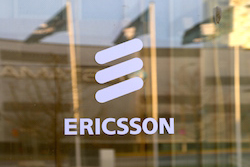Smart cities is to be the latest area of focus for 5G experimentation, with Ericsson and King’s College London announcing a new partnership.
The two organisations will explore the technical implications and challenges facing society as it looks beyond LTE. They will set up a 5G Tactile Internet Lab, which will allow them to trial new radio technology, both in devices and through Cloud RAN tests.
Professor Mischa Dohler, Head of King’s College London’s Centre for Telecommunications Research in the Department of Informatics, said: “In addition to groundbreaking telecommunications paradigms, computer science, such as innovative artificial intelligence and edge-cloud technologies, and robotics, such as novel edge-haptics, will be used to pioneer the Tactile Internet, which is one of many opportunities that 5G will enable.
“Currently we can see and hear through the Internet, but we cannot touch – we have a vision to create the Tactile Internet, where we would be able to touch through the medium of the internet.”
The partnership is Ericsson’s latest to explore potential uses of 5G. The vendor already works with Vodafone in Germany at the Technical University of Dresden, and is involved in the EU project METIS and 5GPPP. The vendor had said there will be up to 50 billion connected devices by 2020, when 5G will be fully commercialised.
Valter D’Avino, Ericsson Head of Region Western and Central Europe, said: “The collaboration with King’s College London will accelerate the momentum around smart cities, the Internet of Things and evolved industries powered by 5G in UK and underscores Ericsson’s ongoing commitment to innovate in Europe and develop 5G with relevant partners as the basis of a networked society and of digitised economies in the next decades.”
Yesterday, Deutsche Telekom opened a 5G innovation lab that will explore the potential uses of new technology.
Read more:
Vodafone brings VoLTE to Germany, shows off 3G
Bell labs President says magical thinking required to break through tech limits



